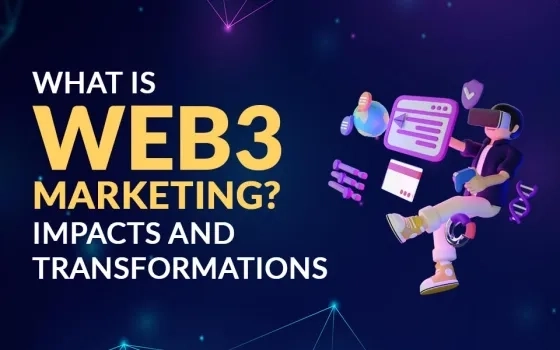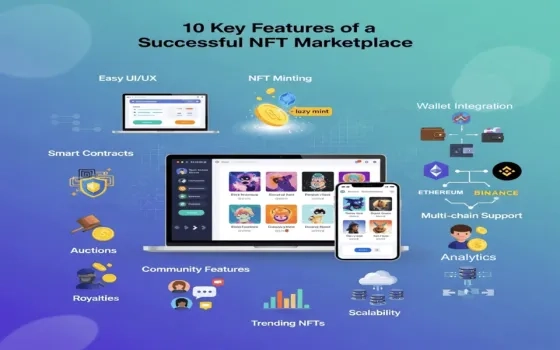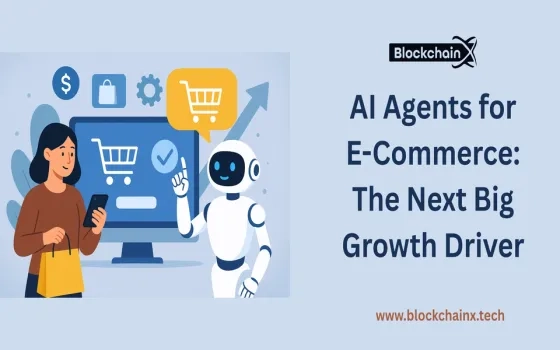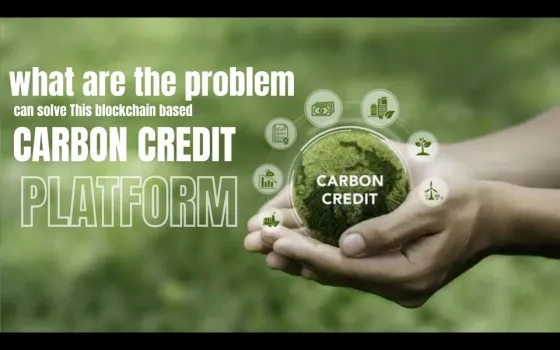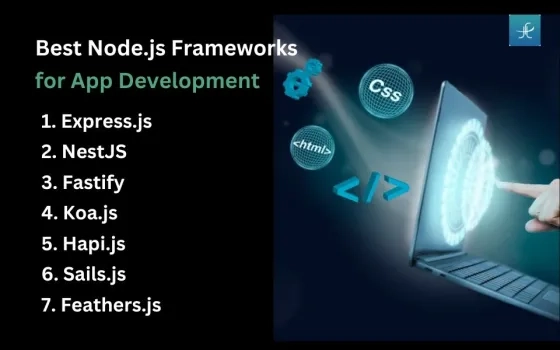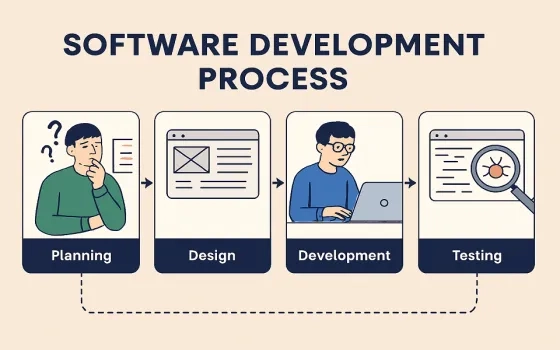The impact of technology on business practices has been profound. When examining marketing specifically, there have been three distinct phases of technological progress: Web 2.0, the rise of social media, and now the emergence of Web3. Initially, Web 1.0 featured static web pages with basic information and graphics. The evolution to Web 2.0 introduced interactivity, the birth of social media platforms, and the ability for individuals to engage through blogs, tweets, and social posts. Let’s see what Web 3.0 has to bring to the table for us in business and marketing.
What Exactly Is Web3 Marketing?
The expectation about the future of the internet is quite noticeable. Widely regarded as the upcoming evolution of the internet and web protocols, Web 3.0 is projected to bring substantial changes to both businesses and marketing domains. The inception of the internet with Web 1.0 in the mid-1990s shifted to the user-generated content focus of Web 2.0 in the early 2000s, altering how we interact and access information online. The imminent Web 3.0 era integrates semantic web tech and AI, paving the way for a more interconnected virtual realm within the internet. This advancement not only emphasizes personalization but also introduces the Semantic Web, facilitating more streamlined information sharing among various entities.
Implications for Businesses in the Web3
Web3 marketing delves into emerging web trends and technologies, fundamentally revolutionizing our perception of the internet. Beyond mere websites and SEO, web 3.0 marketing enhances user engagement through immersive advertising opportunities. Marketers stand to benefit significantly from the targeted ad delivery capabilities of Web 3.0, enabling more efficient strategies and influencing consumer purchase decisions through enhanced information access. The innovative user experience features of Web 3.0 marketing open up a realm of creativity and advancement in advertising and marketing practices.
Web3 Marketing's Key Elements
- Semantic Web: In the earlier discussion, the semantic web is highlighted as a mechanism that enhances communication between computers and humans, utilizing metadata to describe content in a format readable by machines.
- Artificial Intelligence: In the realm of Web 3.0, advancements in Natural Language Processing (NLP) empower computers to comprehend, interpret, and manipulate human language more effectively, mirroring human-like understanding and providing swifter and more precise solutions.
- Ubiquitous Access: By definition, "ubiquitous" signifies being present and accessible everywhere. Web 3.0 embodies ubiquity, ensuring access for all users, across all devices, and through every application. The proliferation of Internet of Things (IoT) devices contributes to this pervasive web presence.
- Decentralization Principle: At the core of Web 3.0 lies decentralization, often referred to as a decentralized or semantic web. Unlike Web 2.0, where data is typically stored on a single server location identified through the HTTP protocol, Web 3.0 distributes information across multiple locations simultaneously, eliminating centralized data storage hubs. This decentralized structure eliminates the reliance on singular data repositories controlled by large authorities, offering enhanced security and privacy.
Implications of Web 3.0's Decentralization
- Elimination of Intermediaries: Through Blockchain technology, Web 3.0 presents a unique opportunity for individuals to directly manage their data and engage in value exchanges without intermediary interventions. Unlike centralized platforms prone to data breaches, decentralized systems prioritize data ownership, fostering true online freedom.
- Mitigation of Server Failures: The absence of central servers in Web 3.0 reduces the risks associated with server failures, a common issue plaguing centralized online services. Decentralization not only bolsters fundamental privacy rights but also empowers individuals to retain ownership of their data, preventing its exploitation by corporations for commercial gains.
- Prevention of Data Breaches: The era of Web 2.0 witnessed rampant data theft concerns, particularly for cloud-stored data. Centralized digital ecosystems increase vulnerability to data exploitation, emphasizing the necessity for decentralized data management to safeguard user privacy and security.
- Enhanced User Privacy: In a decentralized Web 3.0 landscape, users no longer require external authorizations to access their data, bolstering security and privacy by minimizing reliance on third-party entities.
- 3D: The future of design leans towards three-dimensional representations, offering enhanced understanding compared to traditional two-dimensional formats. Web 3.0's progression fosters the incorporation of 3D design in various applications, such as virtual reality (VR), augmented reality (AR), and 3D product visualization, catering to evolving user preferences and technological advancements.
The Impact of Blockchain on Web 3.0 Marketing
Blockchain technology is rapidly evolving and reshaping our daily experiences, with projections likening its significance to the groundbreaking advent of the internet. As this technology proliferates, marketers are confronted with fresh inquiries and hurdles, necessitating a comprehensive grasp of its essence, advantages, and potential utilization within business frameworks.
At its core, blockchain disrupts conventional centralized models, fostering an inclusive ecosystem poised to revolutionize the digital marketing landscape. Web 3.0 stands to benefit from blockchain's foundational principles of data security and decentralization, fostering direct customer connections devoid of intermediary interventions. By entrusting individuals with data sovereignty, blockchain ensures data transparency and security through its distributed ledger methodology, heralding a paradigm shift in transaction verification across diverse domains, from finances to real estate to healthcare records. Consequently, blockchain emerges as a transformative force with the capacity to reshape contemporary marketing paradigms.
In essence, blockchain's integration into Web 3.0 marketing endeavors to streamline operations and enhance transparency. The inherent decentralization of blockchain technology not only bolsters the transparency of web 3.0 marketing practices but also fortifies their resilience against tampering, presenting a virtually incorruptible framework poised to redefine marketing efficacy and integrity.
Implementing Web3 Marketing Services Strategies for Your Project
Prepare for a marketing overhaul that is currently unfolding with visible signs and initiatives. Noteworthy instances include Facebook's transformation into Meta and its investments in the Metaverse. Web 3.0 signifies the forthcoming web evolution, fostering seamless interactions between website content and users through interconnected interfaces and communication avenues. This amalgamation empowers businesses to deliver personalized experiences accessible across various devices and screen sizes, accompanied by real-time data exchange capabilities.
1. Assess the Impact of the Web 3.0 Wave on Your Business
Businesses are poised to transition towards a user-centric and transparent paradigm owing to their decentralized configurations. Empowering users to manage their data and privacy will become imperative, necessitating business proprietors to embrace blockchain technologies to ensure data transparency and unrestricted access.
2. Embrace Web 3.0 Trends
Staying abreast of current trends is essential in today's dynamic landscape. Make informed business decisions while acknowledging the evolving future. Depending on your sector, consider integrating 3D assets—for instance, if you operate a retail eCommerce venture, explore crafting 3D models or virtual reality storefronts.
3. Incorporate NFTs into Content Creation
For marketers emphasizing content creation, maintaining focus is crucial. Although there isn't a definitive guide for this new marketing era, it's evident that NFTs will play a pivotal role in the digital marketing industry's future trajectory. The burgeoning NFT community, exemplified by entities like CryptoPunks, presents an opportunity for brand inclusion. While this transition may seem daunting, view it as a novel approach to engaging with your clientele and communities.
4. Web 3.0 and Social Media
Social media, a perpetual enigma, continues to expand its reach. Platforms like Facebook and YouTube dominate user preferences, reshaping online communication and enhancing user experiences with innovative features. Web 3.0 introduces transformative facets to social media marketing. Expect the emergence of decentralized applications (dApps) and a relinquishment of centralized user data authority, aligning with Web 3.0's decentralized structure—empowering users to steer the narrative.
Web 3.0 marketing underscores the importance of cultivating meaningful customer relationships and fostering mutually beneficial partnerships. It's time for businesses to transcend viewing customers as mere entries in a database, recognizing them as individuals seeking common ground and mutual benefits.



